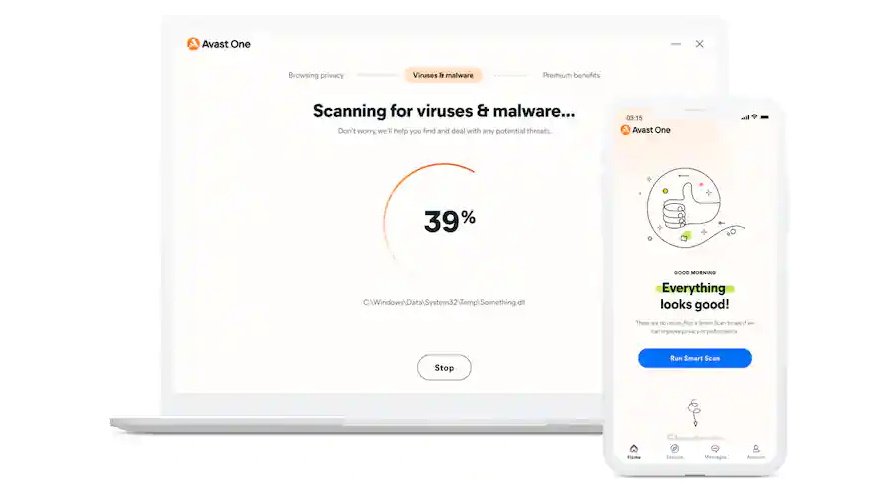Avast overhauls flagship antivirus service to shield against online scams

The antivirus (opens in new tab) maker Avast has upgraded its all-in-one protection service Avast One (opens in new tab) with new features aimed at protecting users from online scams, fraud and other personal privacy threats.
According to a recent study carried out by the company, the three most common ways consumers and businesses are targeted by scammers include email (62%), text messages (52%) and through social media (29%). For this reason, Avast has decided to add scam and online fraud protection to its flagship antivirus offering.
The update to Avast One also includes a new feature launching on Windows and Android called Online Safety Score that provides users with regular feedback on their digital habits and gives them personalized tips to improve their online and device safety. Meanwhile, Privacy Advisor is an educational tool that offers simple step-by-step instructions to adjust and improve privacy settings on Google, Facebook, LinkedIn and other popular online platforms.
Chief product officer at Avast, Vita Santrucek explained in a press release (opens in new tab) how the company’s new additions to Avast One can help users feel safer and less at risk of online scams, saying:
“We know scams are a cause for concern for a lot of people so our goal with the new additions to the Avast One suite was to help them regain confidence and peace of mind when using the internet and their devices. Not only are scams and other forms of online fraud more pervasive, they’re also more sophisticated, to the extent it’s really hard to differentiate between content that’s benign and content designed to exploit. Scammers take advantage of current affairs to reel people in, for example, two years ago we saw a spike in Covid-related scams, and in February and March this year we saw scams related to the Ukraine war.”
Email Guardian, Scam Protection and Smart VPN
In addition to Online Safety Score and Privacy Advisor, the free version of Avast One, Avast One Essential, is also getting another new feature in the form of Email Guardian.
Email Guardian blocks malicious attachments (opens in new tab) in emails and prevents users from sending these dangerous files to others. When a malicious attachment is detected, an alert is displayed and from here, a user can still choose to download a file if they think it is safe on Windows and Mac.
The paid versions of Avast One, Avast One Individual and Family, are getting two new features in the form of Scam Protection and Smart VPN.
> Avast One features explored: what you get with Avast’s premium antivirus suite (opens in new tab)
(opens in new tab)
> NortonLifeLock, Avast confirm multi-billion merger to form new antivirus giant
(opens in new tab)
> Avast sells Family Safety Mobile division to focus on IoT threats (opens in new tab)
As the name suggests, Scam Protection helps protect users from scams by notifying them when they receive a text or social media message where a potentially dangerous link (opens in new tab) has been identified. If the link is safe, it’s opened automatically in a user’s browser (opens in new tab) but if it’s
Be the first to write a comment.





